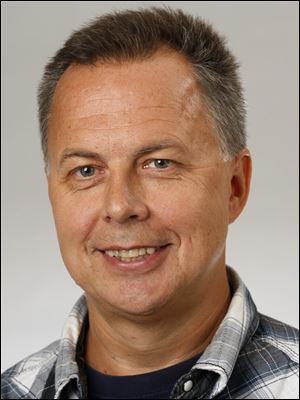
Putin silent on Bolshevik celebration, wary of praising revolutions
11/19/2017
Russian President Vladimir Putin delivers his speech attending the World Health Organisation ministerial conference in Moscow, Russia, on Thursday.
ASSOCIATED PRESS
Russia this month skirted the centennial of the 1917 Bolshevik revolution, traditionally seen as the birth of the Soviet Union, its predecessor.
There was no official celebration Nov. 7 because Russian President Vladimir Putin fears a U.S.-sponsored regime change — which is also why Russia interfered with the U.S. presidential elections.

Russian President Vladimir Putin delivers his speech attending the World Health Organisation ministerial conference in Moscow, Russia, on Thursday.
That’s also why Mr. Putin has used his intelligence services, propaganda machine, and government-connected mafias to destabilize other Western democracies, notably by elections meddling, fueling the rise of the far-right, and sowing discord between the Unites States and its European allies, as well as between the individual countries of the European Union.
To be sure, Communist devotees marched and rallied in Moscow and St. Petersburg, but Mr. Putin made no mention of it.
That came as a bit of surprise to those mindful of his infamous remark that the breakdown of the Soviet Union was “the greatest geopolitical tragedy of the 20th century,” leaving out such events as the two world wars and the Holocaust. A former career KGB officer, he blames the dissolution on the West, particularly the United States – not the USSR's failed political and economic system.
The last thing Mr. Putin wants to do, however, is celebrate any kind of revolution, least of all the Bolshevik one.
Effectively Russia's czar, he does not want to repeat the fate of Russia's last legitimate czar who was murdered by the Bolsheviks.
Most important, he blames the Unites States for the revolutions of the recent history, casting the United States and its allies as the perpetrators of a concerted effort to affect regime changes in the countries they supposedly seek to subjugate under the guise of promoting democracy and human rights – a penchant he particularly attributes to the U.S. Democrats. This has become clear when the magnitude of Russia’s meddling in the U.S. presidential elections was revealed.

Sigov
Mr. Putin uses this irrational belief to explain away Russia’s internal problems and to justify his spoilsport international policy. The West reacts, mostly with economic sanctions — often belatedly and largely ineffectively — but fails to discourage Mr. Putin from carrying on with his disruptive practices.
As a result, the U.S.-Russian relations appear to be caught in a vicious circle.
Consider:
- The second American war in Iraq led to the execution of a like-minded dictator and a Russian ally Saddam Hussein in 2006. That’s when, by some accounts, Mr. Putin’s dislike of revolutions turned into fear.
- In 2007, Mr Putin reacted by accusing the United States in his infamous remarks at the 43rd Munich Conference on Security Policy of “uncontained hyper use of ... military force” and “disdain for the basic principle of international law,” saying America “has overstepped its national borders in ever way.” He followed up by invading Georgia in 2008, seeking to undermine the country’s democratic process he saw as sponsored by the United States.
- The Arab Spring brought about the demise of some other dictators, most notably that of Russia's staunch ally Muammar Gaddafi, whose horrific death in October of 2011 was captured on a video that some argue drove Mr. Putin to paranoia.
- Anti-Putin election protests in Russia followed in December, 2011, carrying over into 2012 and 2013. Mr Putin summarily blamed the United States, particularly the then Secretary of State Hillary Clinton, as the alleged instigator and puppeteer of the protesters.
- In 2014, Russia invaded Ukraine, whose people had just ousted a thieving pro-Russian president. Mr. Putin made it clear he believed by doing so he was just getting even with the United States. The invasion led to the Western sanctions that only reinforced his belief that America was out to get him.
Most recently, there was Russia’s meddling in the 2016 U.S. presidential elections, Brexit, France's 2017 presidential election, and efforts to effect Catalonia’s secession from Spain.
Additionally, Russian and Russian-controlled forces have recklessly pushed into the territory formerly controlled by the U.S.-supported militias In Syria, risking a clash with U.S. troops. Russia has also violated a ban on intermediate missiles in Europe, introducing a risk of an accidental launch.
Despite President's Trump's so-far unexplained coziness with Mr. Putin, the continuing U.S.-Russian standoff increases the chance of an accidental triggering of a military confrontation between the two states supercharged with nuclear weapons.
Mr. Putin's Americanophobia is best exemplified in a Russian television pseudo-documentary that purports to detail a U.S. banker-involved conspiracy to sponsor the 1917 Bolshevik revolution, casting all Russia's unparalleled woes of the past 100 years — including purges, famines, genocides, and ill-conceived wars that cost Russians dozens of millions of lives — as a U.S. doing.
He has successfully used his propaganda machine to maintain anti-U.S. hysteria as a means to justify his multi-billion-dollar militarization program. Besides being an intimidation tool, the latter serves him to explain away Russia's economic woes and hide the fact that they result primarily from the country's systemic corruption and dependence on oil and gas exports.
There must be a way, however, to relieve Mr. Putin's paranoia of a U.S.-sponsored regime change in Russia and begin to normalize the U.S.-Russian relations.
Mike Sigov, a former Russian journalist in Moscow, is a U.S. citizen and a staff writer for The Blade.
Contact Mike Sigov at sigov@theblade.com, 419-724-6089, or on Twitter @mikesigovblade.